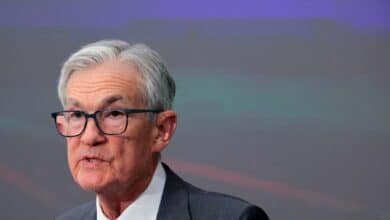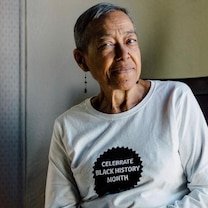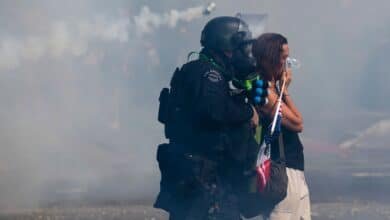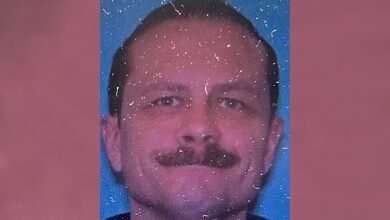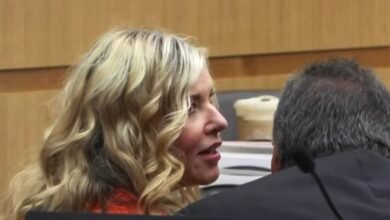Central Witness Socava the case against James Comey, prosecutors concluded: Fuentes
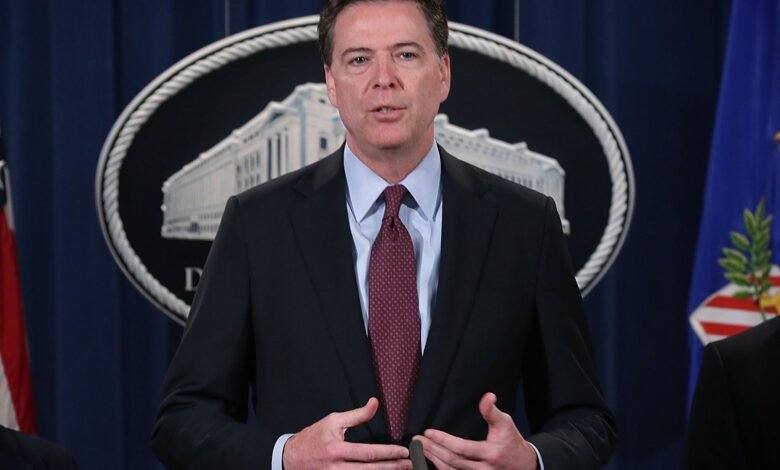
Federal prosecutors investigating former FBI director James Comey for allegedly making false statements to Congress Determined that a central witness in his investigation would be “problematic” and would probably prevent them from establishing their case for a jury, sources familiar with their findings to ABC News said.
Daniel Richman, a law professor that prosecutors claim that they authorized to filter information to the press, told the researchers that the former FBI director told him not to get involved with the media on at least two occasions and unequivocally said that Comey never authorized him to provide information to a reporter anonymously before the 2016 elections, the sources said.
Comey, who was accused last month For charges of making a false statement and obstruction related to the 2020 testimony before the Judicial Committee of the Senate, it will be presented in a Chamber of the Virginia court for the first time for its reading of charges on Wednesday, but the officials of the Department of Justice have expressed in private that the case could quickly unravel under the scrutiny of a federal judge and defenders lawyers.
According to prosecutors who investigated the circumstances surrounding the testimony of Comey 2020 for two months, using Richman’s testimony to demonstrate that Comey provided false statements knowing to Congress would result in “probably unsurpassed problems” for prosecution.
The researchers detailed these conclusions in a long memorandum last month, which recommends that the office does not advance in the collection of Comey, according to sources familiar with the contents of the memory.
Lindsey Halligan, a Trump loyal chosen to replace the United States prosecutor for the East district of Virginia who resisted Trump’s political enemies, still advanced in the presentation of the case before a large jury in Alexandria, Virginia, and assured two of three accounts that he tried against Comey about his testimony of Congress 2020.
During the procedures of the Grand Jury, prosecutors do not have the obligation to present favorable evidence for a defendant, but such evidence must be delivered to the defendant before the trial.
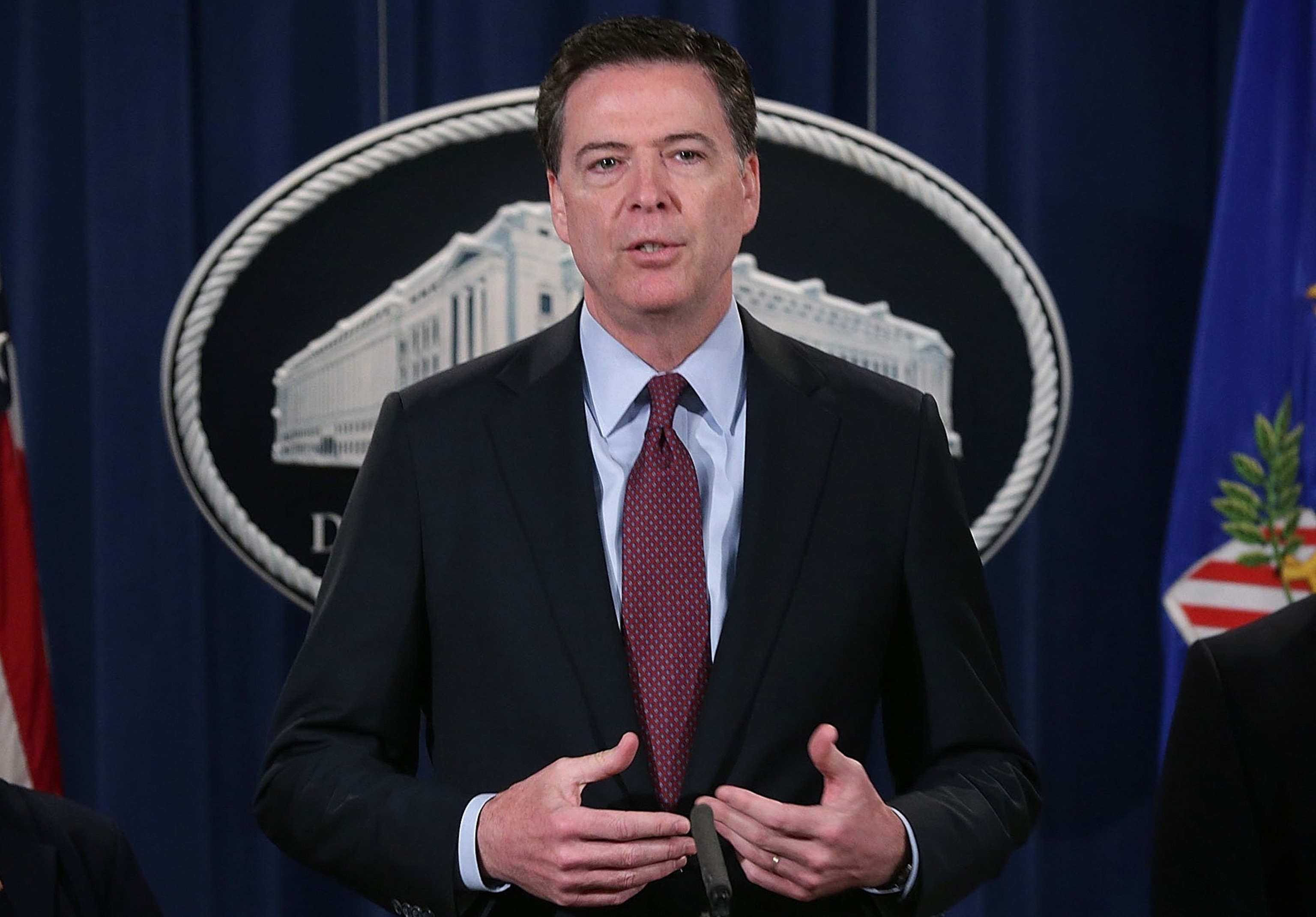
The director of the FBI, James Comey, speaks during a press conference, on March 24, 2016 in Washington.
Alex Wong/Getty Images
The deputy of Halligan raised similar concerns about the case the same week as the former White House assistant turned into prosecutor asked a great jury to accuse Comment, reinforcing the conclusion that no single piece of evidence could show that Comey lied to Congress and warned against Richman’s confidence, whom he described colleagues as a hostile witness, according to the sources.
Prosecutors also expressed concerns about the department’s ability to take the case to trial quickly due to identification problems of all relevant materials that should be delivered to Comey’s lawyers, the sources said. They also gave alarms about Comey’s defense potential to cite the statute of limitations for the case, which derives from the testimony in 2017 and was only reinforced by Comey during his 2020 testimony in response to a question by Republican Senator Ted Cruz.
Comey, who is expected not to be guilty of charges, denies irregularities and has argued that he is being white for political reasons. His accusation occurred a few days after Trump’s unprecedented lawsuit that his performance as a “now” department of the former director of the FBI and others.
“Nothing is being done. What happens to Comey, Adam ‘Shifty’ Schiff and Leticia?” Trump wrote in a publication on social networks last month, directing directly to the attorney general Pam Bondi and referring to the Senator of California, Adam Schiff, and the New York Attorney General Letitia James. “We cannot delay anymore, it is killing our reputation and credibility. They defended me twice and accused me (5 times!), More of nothing. Justice must be served, now!”
Halligan Ans that Comey intentionally cheated Congress in 2017 and 2020, when he testified that he never authorized another person in the FBI to provide information to the media anonymously. The accusation is that Comey authorized Richman to speak with the press anonymously, contradicting his testimony.
Later, Trump accused Comey of violating the law by sharing his memoranda, arguing that they contained classified information, although Richman then told ABC News in a statement that none of the documents had classification marks.
When prosecutors met with Richman in September, he told them that he never served as an anonymous source for Comey or acted in the direction of Comey while he was director of the FBI, sources familiar with his interview with ABC News said. In at least two cases in which Richman asked him if he should talk to the press, Comey advised him not to do so, the sources said.
The researchers who checked Electronic Compress material, including their correspondence with Richman, could not identify an instance when Comey approved the escape material to a reporter anonymously, sources told ABC News.
Richman, A friend of Comey for a long time, has previously recognized his role as an intermediary between Comey and reporters after Comey was fired from his role as FBI director, including the escape of memories written by Comey about his interactions with Trump after his completion.
Federal prosecutors have focused their investigation into the actions of Comey as director of the FBI, including the alleged escape of information on Trump and Clinton campaigns before the 2016 elections, to find evidence that Comey intentionally cheated the Congress.
As ABC News previously reported, the office prosecutors in the office not only determined that the large amount of evidence raised in their investigation would be insufficient to convince a jury to condemn him in a trial, but also would not comply with a lower standard to reach a probable cause to incorporate a case.

